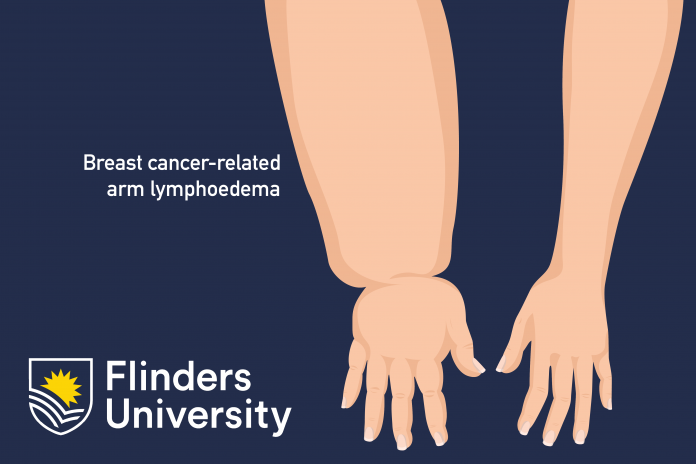In a global effort to improve the lives of breast cancer survivors, new leading health research has looked at strategies that can help prevent lymphoedema for millions of cancer survivors as a result of damage or removal of their lymph nodes during cancer treatment.
Compression sleeves, surgery to repair patients’ lymphatic systems and axillary reverse mapping (ARM) should be offered to people at risk of developing breast cancer-related arm lymphoedema (BCRAL), according to the study published by The Lancet in eClinicalMedicine.
Lymphoedema is a distressing condition that involves the accumulation of fluid in patients’ arms, resulting from damage or removal of lymph nodes during breast cancer treatment. The global experts in this study have, for the first time, published a clinical guide on how and when to roll out evidence-based interventions.
While there is currently no approach that can completely prevent lymphoedema, researchers from Princess Margaret Hospital in Hong Kong, Flinders University and the University of Toronto collaborated with 64 global experts from 16 countries to develop guidance that can effectively help prevent the condition after reviewing clinical trials.
The study reviewed data from more than 60 thousand patients with breast cancer-related arm lymphoedema involved in high-quality randomised-controlled studies to determine the best prevention strategies and risk factors that can cause the condition.
These risk factors include post-surgery radiotherapy, not monitoring patients arm volume one month after surgery, the number of lymph nodes removed, and a high body mass index.
Breast cancer survivor Monique Bareham says chronic lymphoedema is irreversible, difficult to treat and significantly affects patients’ quality of life, so effective management to prevent it and halt its progression is critical.
“Like many breast cancer survivors, I received limited and conflicting information about lymphoedema following cancer treatment, leaving me anxious and ill-equipped to manage my symptoms. It had a negative effect on me psychologically and physically and left me unable to return to work. “
“This research raises awareness of this under recognised condition and addresses gaps in clinical understanding. It is a necessary step toward providing care that will lead to better health outcomes for many breast cancer survivors Worldwide.”











